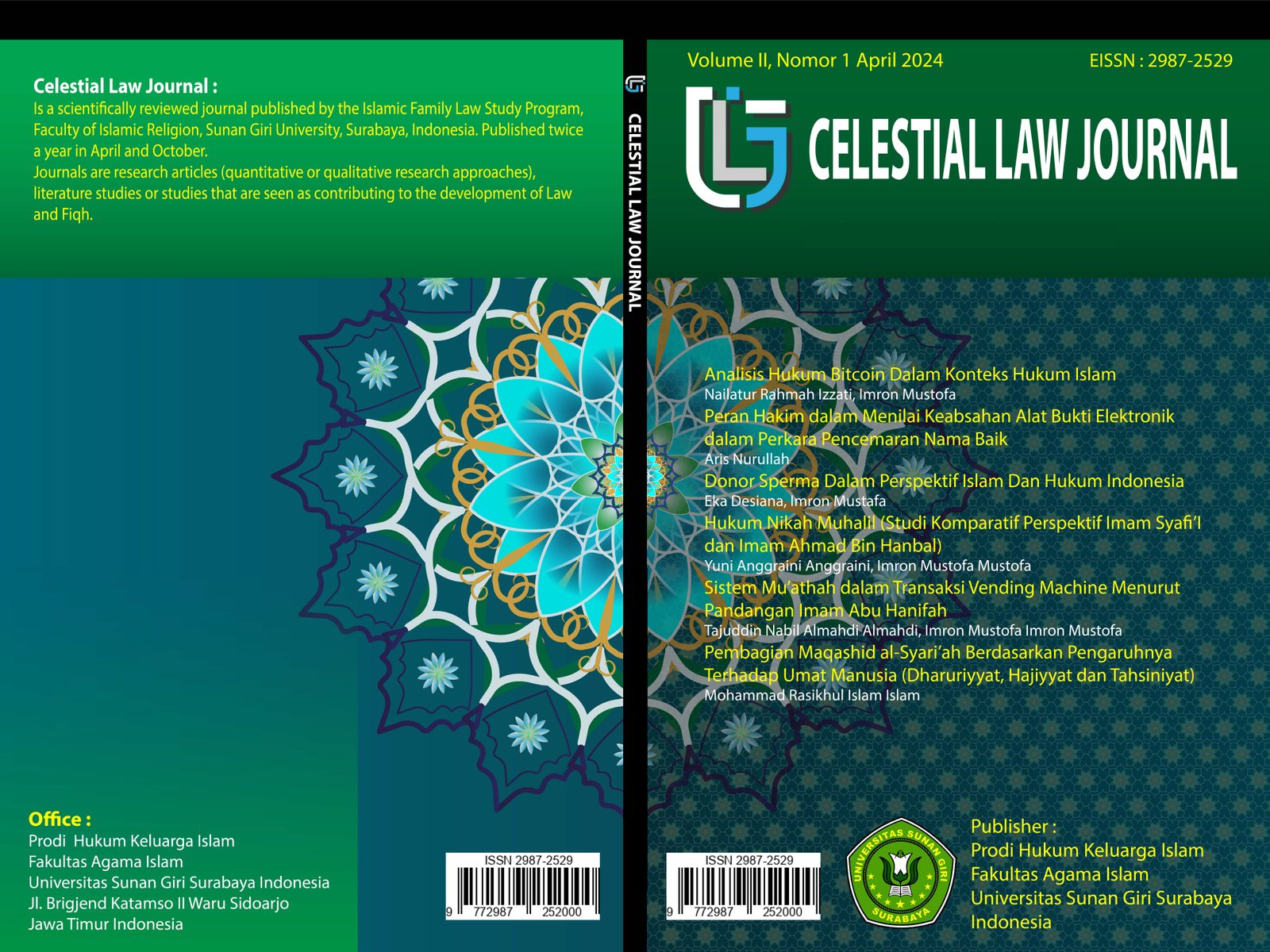Legal Analysis of Bitcoin in the Context of Islamic Law
Keywords:
BITCOIN, DIGITAL CURRENCY, ISLAMIC LAWAbstract
At this time, the impact of globalization is very strong, especially in the fields of science, information, technology, and communication, which are experiencing rapid growth. The world is changing towards a new direction and urges to keep up with its developments, including Indonesia. In the economic sector, buying and selling transactions become crucial, particularly due to the rapid advancements, where buyers and sellers don't necessarily have to meet in person, but can now conduct transactions through the internet or cyberspace, enabling transactions anytime and anywhere. Half of the population is shifting from conventional currency to digital currency preserved by cryptography, with Bitcoin being the most well-known among them. However, the use of Bitcoin has sparked various controversies worldwide, including in Indonesia, because its existence is not officially recognized and there is no clear regulation. In Islam, scholars are still debating whether Bitcoin can be considered halal or haram when examined through the Quran, Hadith, Ijma', and other Islamic sources.







